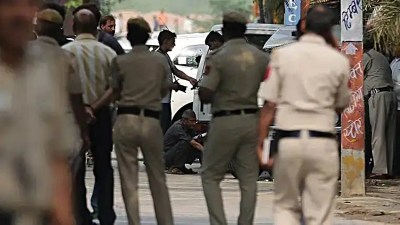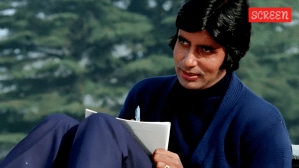Right man for the job
As a reluctant appointee to the job of India’s home minister, P. Chidambaram has come a long way in just 15 days.

As a reluctant appointee to the job of India’s home minister, P. Chidambaram has come a long way in just 15 days. He has taken several decisions of far-reaching importance, including setting up of four centres of NSG across the country and the revival of the post of Internal Security Advisor. The post of ISA was removed when MK Narayanan was promoted as the National Security Advisor; Narayanan himself was our ISA when JN Dixit held the job of NSA for the Indian government.
Within this brief tenure, Chidambaram has managed to get two crucial bills passed in Parliament and cleared the way for the establishment of a National Investigation Agency. His amendment to the Unlawful Activities (Prevention) Act has made this law more stringent than POTA. He has ensured the passing of two bills in Parliament with lasting impact on internal security. Chidambaram has gone ahead and sanctioned a direct purchase of 2,000 bullet-proof jackets for security commandos, bypassing the established process of inviting tenders, which would have delayed the supply by nearly two years. He even wrote to the Chief Vigilance Commissioner noting that he consciously bypassed the tendering process in national interest and requested for the CVC’s approval of his decision.
Chidambaram’s most significant announcement came during his reply to a debate on terrorism in Rajya Sabha. He first critiqued the government machinery for delays in crucial decision-making, which he said was costing the country dearly. He also said that various government departments, including the CBI and vigilance, serve as the biggest impediments to decision-making and crucial decisions were held back for years. Because of the fear of audits and avoidable questioning by some of these agencies, government officers are today wary of making any decisions and prefer to sit on crucial files. Chidambaram told Parliament that he was determined to let go of all constraints and take decisions liberally, without worrying about their repercussions.
Dadagiri
Foreign Affairs Minister Pranab Mukherjee’s constant outpouring of aggression in the wake of the Mumbai terror attacks has caught most people off guard. Even the Opposition was stumped after Mukherjee’s rousing speech in Parliament against Pakistan-promoted terrorism.
Arun Shourie, leader of the main opposition party, remarked in a private conversation that it was for the first time that he saw a Congress minister using such tough language against Pakistan. In fact, nobody can deny that Pranab dada today has become the voice of millions of outraged Indians.
Having sensed the prevailing mood, Mukherjee subsequently mounted an unprecedented diplomatic offensive to make Pakistan fall in line. Time and again, he has warned Pakistan of his willingness to keep all his options open.
In every meeting on terrorism, Mukherjee’s anguish and determination to respond is easily visible. He is of the firm opinion that mere statements are not going to serve the purpose this time and that responding action in some form is necessary. It is not for nothing that Mukherjee’s statements have the entire Pakistan top brass shuddering and growing anxious by the day.
Follow Ratan
It is good that Ratan Tata has realised that he needs to arrange sufficient security for his own hotels. For someone making millions in profits from his property, Tata is equally obliged to ensure effective security of the establishment as well as his guests. Until the Mumbai terror attack last month, security in five-star hotels could be described as shoddy at best. The security officers who were hired by the hotel were ill-trained and their job was often limited to supervising the movement of people on the hotel floors. Their weapons were outdated and were grossly ill-equipped to handle any serious security breach.
Tata’s statement that he will provide for security at all Taj hotels across the country is a welcome step. Effective security in the hotels, combined with support from the local police and government security agencies should be able to prevent or contain at least many terrorist attacks. I hope all hotel owners follow Tata’s example and introduce sufficient private security to protect their guests.
The writer is a Congress MP in the Rajya Sabha



- 01
- 02
- 03
- 04
- 05




























